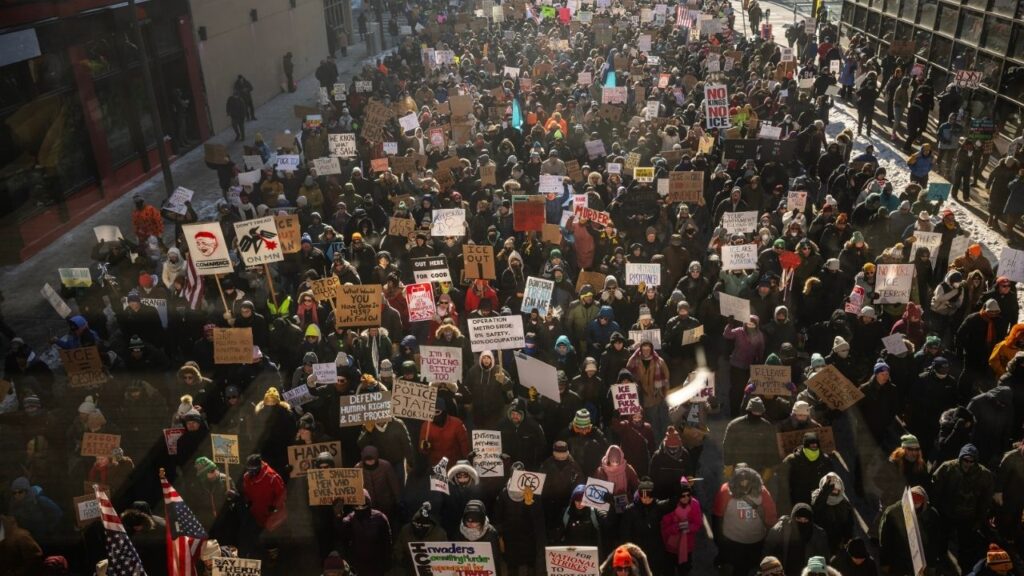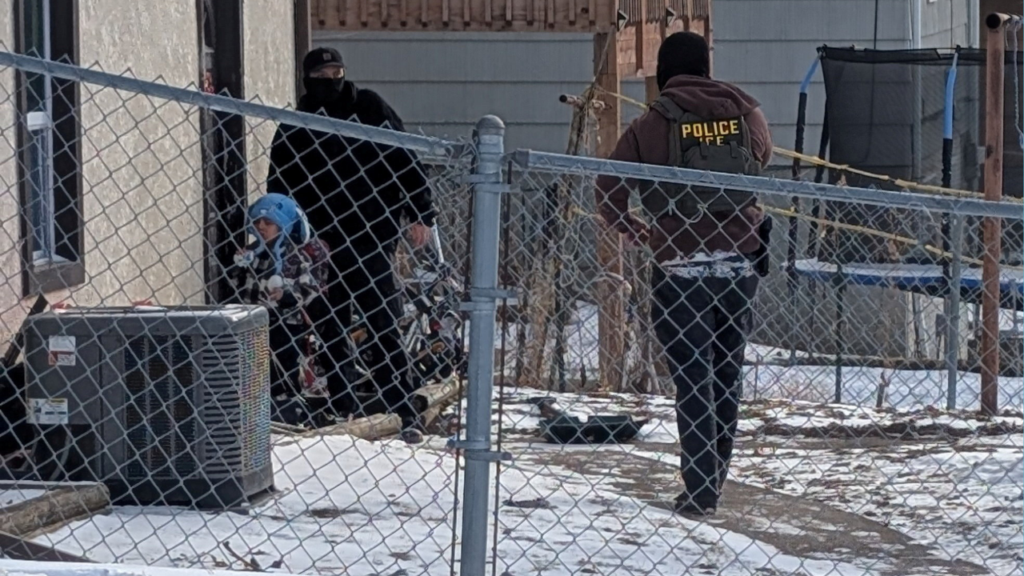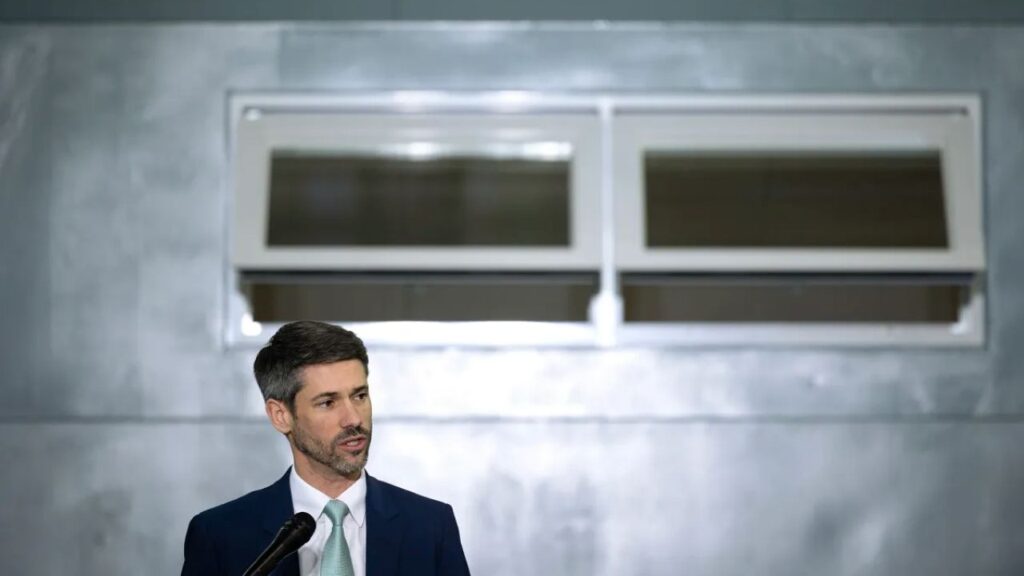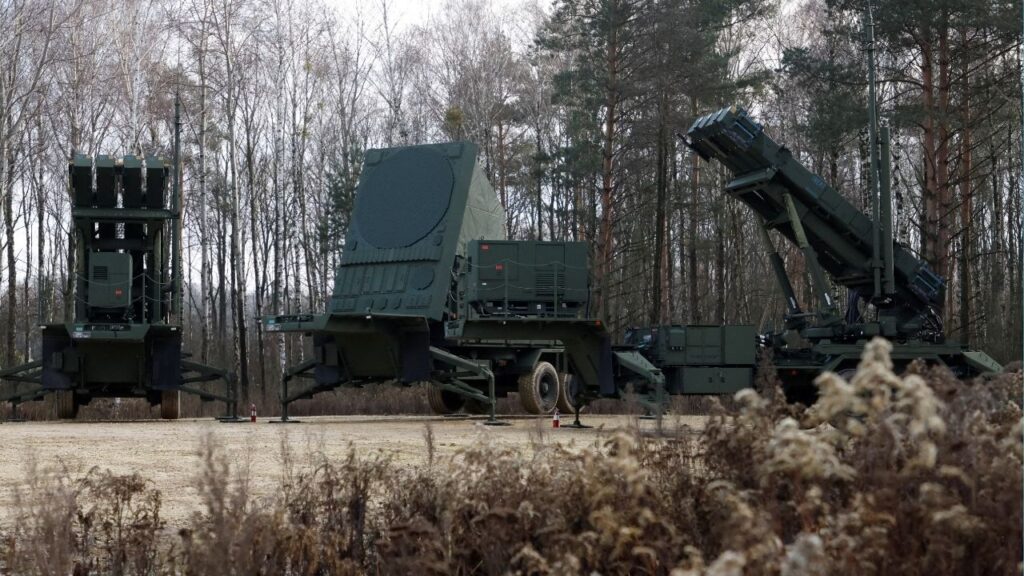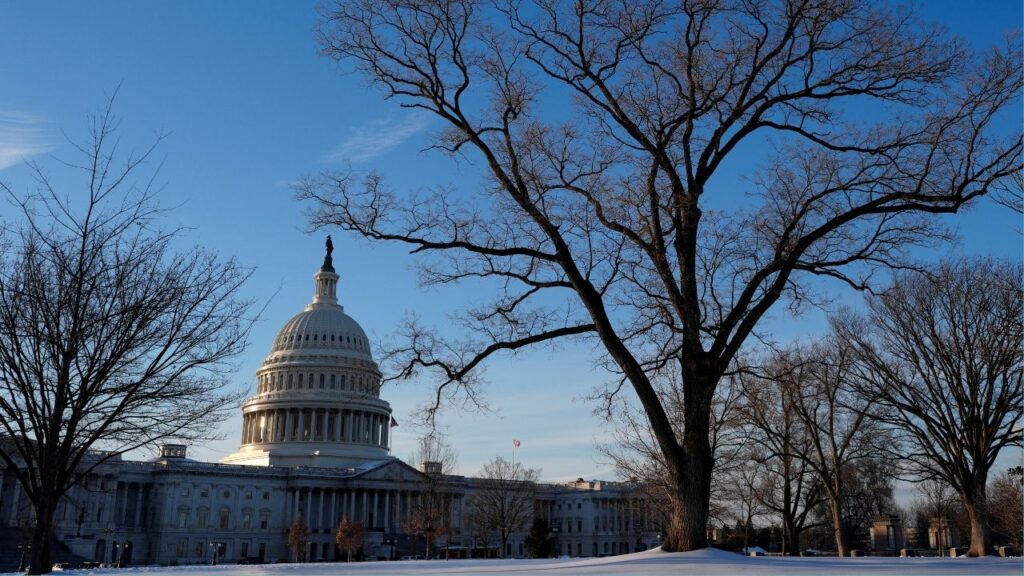Hundreds of rockets were fired from Lebanon into northern Israel after Israeli airstrikes killed a senior Hezbollah commander, escalating the conflict and causing fires as Hezbollah vowed to intensify attacks. (AP Photo/Leo Correa)
Share
|
Getting your Trinity Audio player ready...
|
Hundreds of rockets were fired from Lebanon toward northern Israel on Wednesday, hours after Israeli airstrikes killed a Hezbollah militant commander. The Israeli military said that about 215 projectiles were detected, of which some were intercepted, and that several fires were caused by the strikes.
Hezbollah vowed to intensify its attacks after the death of Taleb Sami Abdullah, 55, who was the most senior member of the group killed since fighting began eight months ago. “Let the enemy wait for us in the battlefield,” senior Hezbollah official Hachem Saffieddine said at the funeral in Beirut.
Hezbollah, an Iran-backed ally of the Palestinian group Hamas, has recently been striking further inside Israel and introducing new and more advanced weaponry, while Israeli warplanes have bombed deep inside Lebanon. Hezbollah says it will only stop if there is a truce in Gaza.
Related Story: UN Security Council Adopts Cease-Fire Resolution to End Israel-Hamas War
Mediators Trying to Close Cease-Fire Deal
Mediators are trying to close the elusive deal for a cease-fire and hostage release in Gaza, said U.S. Secretary of State Antony Blinken on Wednesday. Hamas has requested numerous changes to a U.S.-backed proposal, some of which Blinken said were “workable” and some not.
Hamas says its “amendments” aim to guarantee a permanent cease-fire and complete Israeli troop withdrawal from Gaza. The cease-fire proposal announced by U.S. President Joe Biden includes those provisions, but Hamas has expressed wariness whether Israel will implement the terms.
Related Story: Israel’s Secret Influence Campaign Targets US Lawmakers Amid Gaza War
Israel’s war against Hamas in Gaza has killed more than 37,100 people, according to Gaza’s Health Ministry, which does not distinguish between combatants and civilians in its count. Palestinians are facing widespread hunger because the war has largely cut off the flow of food, medicine and other supplies. U.N. agencies say over 1 million in Gaza could experience the highest level of starvation by mid-July.
Israel launched the war after Hamas’ Oct. 7 attack, in which militants stormed into southern Israel, killed some 1,200 people — mostly civilians — and abducted about 250.






